Global
Copyright@ Australian Catholic University 1998-2026 | ABN 15 050 192 660 CRICOS registered provider: 00004G | PRV12008
Copyright@ Australian Catholic University 1998-2026 | ABN 15 050 192 660 CRICOS registered provider: 00004G | PRV12008
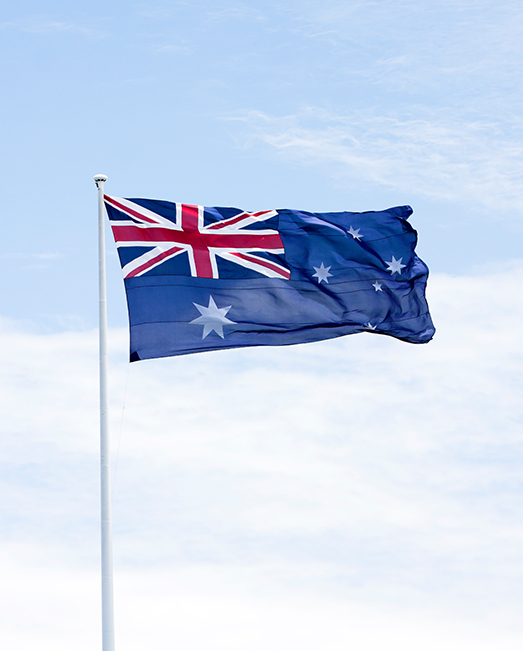
The rise in domestic terrorism in Western countries like Australia, the UK and France has troubled our politicians and the wider society. Dr Joshua Roose, author of the book Political Islam and Masculinity: Muslim Men in Australia, helped us to navigate the minefield of violent extremism and radicalisation in the West.
For many Australians, the spectre of radicalism hit home when the front pages of our major newspapers were plastered with pictures of Aussie jihadists who had lined up to fight alongside Islamic State.
A string of terrorist incidents on home soil, most notably the Lindt Café siege in Sydney, had fanned the flames of fear. And in an effort to combat the threat of violent extremism, the Australian government poured millions of dollars into de-radicalisation programs.
Our politicians have been vocal in expressing their concerns about the rise of violent jihadist movements. Former Prime Minister Malcolm Turnbull linked the rise in terror attacks on “radical Islamist ideology” and former Foreign Minister Julie Bishop declared that Islamic State was “the most significant threat in the global rules-based order to emerge in the past 70 years”.
There is no doubt that the group’s narrative was planted in fertile soil in the West, and a few young Muslim-Australian men fell prey to the sophisticated IS propaganda machine.
Dr Joshua Roose is the Director of the ACU's Institute for Religion, Politics and Society and an expert on political Islam. His work has explored some of the root causes of radicalisation and violent extremism in Australia.
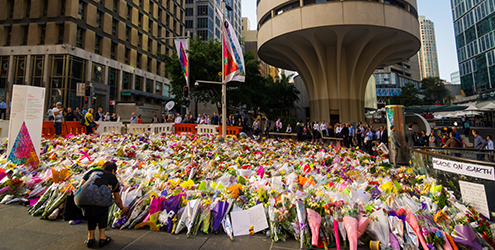
Martin Place in Sydney, after the Lindt Cafe siege.
Why did so many young Australian-born men leave their families and homes to fight in Syria and Iraq? It’s a complex question with no simple answer. In his book, Dr Roose referred to the “9/11 Generation”: Young Muslim men and women born around the time of the September 11 attacks who have, he says, “grown up in an environment that is inherently hostile towards them in terms of the media and political discourse”.
Dr Roose has conducted case studies of Australian men involved in suicide attacks and found some of the key shaping influences often weren’t discussed in connection with radicalisation. These include vulnerability, shame and grief.
“The first generation of Australians to be connected with this type of radicalism embodied that image of violent extremists: they were all big guys, they were all going to the gym, they had full-length beards …” Dr Roose said.
“But what we're seeing more recently is these young men who don't look the part. They're not dressing like hard-line Salafis (an ultra-conservative branch of Sunni Islam), they're not going to the gym, they don't embody that sort of resistance identity or outlook … but what they are is incredibly angry and incredibly emotional, there's a lot of turmoil bubbling inside them.
“Many of these young men have experienced extreme grief, vulnerability, a sense of humiliation and a sense of shame, and it's about how they're responding to those extreme emotions when you’ve got a group like Islamic State actively targeting them online, talking about empowerment and fighting back.”
In exploring the role that masculinity plays in radicalisation and violent extremism, Dr Roose has argued that Australian-born Muslims reference who they are as men in relation to “those with real power, those with more resources and more status than themselves”.
“Australian society is still dominated by white men in suits. If you look at the boardroom and if you look at the Australian government, diversity hasn't made many inroads,” he said.
“In comparison, many Australian-born Muslim men are lacking things as basic as being able to afford a car and a house and resources in order to be able to marry, they are in these downward economic trajectories.”
The comparison “reinforces a wounded masculine pride”, Dr Roose said.
“You're promised as an Australian that you can do anything, but these young men are hitting a glass ceiling and finding out that's not quite true,” he said.
“That causes a lot of anger and a lack of belief in Australia, and so when this alternative narrative comes from Islamic State, offering them not only empowerment, but saying, 'come and fight for us and you can effectively go from being zero to hero overnight', that's a very attractive fix.”
The Western media’s role in helping Islamic State to sell its message has been widely explored. The Lowy Institute’s 2016 paper Islamic Estate Propaganda and the Mainstream Media declared that IS “relies on Western media reporting to amplify its message … Unwittingly, the Western media has become an accomplice to Islamic State’s aims”.
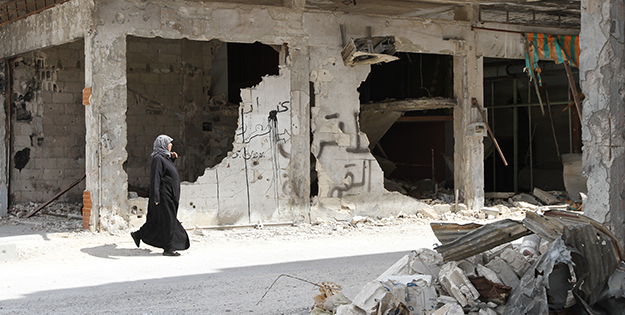
What’s less often talked about is the effect the media’s reporting has had on Muslims in the West. Australian author Randa Abdel-Fattah has written about “the pervasive and relentless impact of political and media discourse in training people to fear Muslims”.
Dr Roose agreed that mainstream depictions of Muslims in the tabloid media can lead young Muslims to feeling persecuted and demonised.
“The re-emergence of radical Islam through Islamic State, replacing Al-Qaeda, led to a return to the tabloid fix, of easy cannon fodder for the tabloid media,” he said.
“That's very often listed by people in the wider Muslim community in Australia as a major cause of alienation from wider society.
“On the other hand, when [non-Muslim] Australians receive this messaging, this often extreme messaging through the mainstream media, which in many cases is their primary source of news and information, is it irrational for them to fear Islam?”
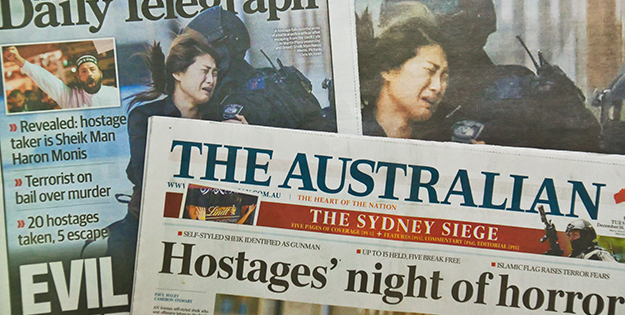
Islamic State has been a latent force in the social media war since it declared its so-called caliphate in 2014, and Western foreign fighters have been instrumental in helping to recruit others to the cause, Dr Roose said.
“People like [Australian Islamic State member] Neil Prakash and others have effectively sat in rooms and spent their days messaging and tweeting and engaging potential fighters, young Muslims who are seeking this sense of belonging, and what they do is target their humiliation, their sense of alienation, and they throw that message out there through sophisticated videos and tweets and so on, and some young Muslims are buying into it.”
Does prejudice play a role in adding to the sense of alienation felt by many Australian-born Muslims? “It’s not helpful,” Dr Roose said, “but it’s certainly not the sole cause”.
“I'm personally critical of the concept of ‘Islamophobia’ because what it does is it polarises. It effectively says that if you don't like Islam then you are irrationally scared of it.
“There are many, many Australians out there who've never even met a Muslim, let alone worked with one or developed a friendly relationship with one, and that is where some prejudice can occur.
“This is why more work needs to be done to bring communities together and to put people into contact with one another, to break down those barriers and walls.”
And while some argue that Pauline Hanson’s re-emergence on the political scene with a strong anti-Islam policy push was an insult to Australian Muslims, Dr Roose said she was “effectively preaching to the converted”.
“She’s been successful in gaining some attention but if you look at the response to her burqa stunt, she received immediate condemnation from [Federal Attorney-General] George Brandis and the Liberal Party, Labor, the Greens and others, and I think that’s the key,” he said.
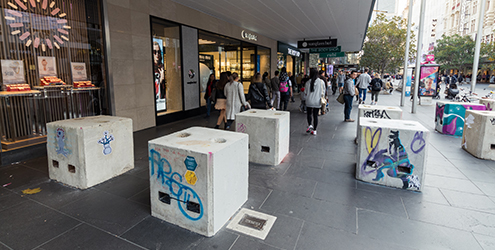
Anti-terrorism blocks in Bourke Street Mall, Melbourne.
The NSW Government’s Radicalisation e-brief lists “close personal relationships” as one of the key driving factors that lead people toward violent extremism. This is often through radical fringe groups that are ostracised by mainstream mosques, Dr Roose said.
“When we talk about Muslim communities in Australia, we're talking about 80 different nationalities, we're talking many different languages, we're talking incredible diversity, but who represents these communities?
“It's the older generation, which is usually out of touch with young people and isn’t very good at engaging with them, and it creates this vacuum where young people can be easily exploited by radical imams.
“Almost 99 per cent of the time the self-proclaimed imams are men, talking to groups of young men, and so that leadership is important and can propel them towards further action, which can include going overseas to fight with the Islamic State or conducting violent attacks here in Australia.”
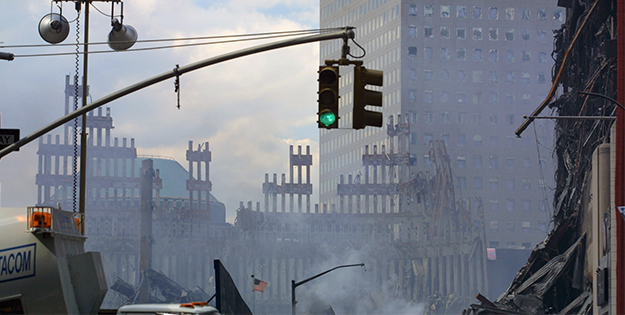
You think the rise of Donald Trump, Brexit and the Islamic State bear no direct relation to each other? Dr Roose makes a strong case that they are part of the same phenomenon.
“In recent years we've seen the emergence of different types of populism, and people who are feeling marginalised and alienated are being drawn to narratives that offer them empowerment, be it through Donald Trump, be it through the far right movements in Europe and the push for Brexit, be it through Bernie Sanders, a populist who attracted a more hard left supporter base,” Dr Roose said.
“I argue that these same forces that are driving working class men in rural America, or the UK and Europe, are quite similar to the forces that are shaping people to be drawn to the IS movement, and that's effectively an economic marginalisation.
“The new economy is pushing people to the fringes, and you can either perform in the knowledge economy and adapt and evolve or get thrown on the scrapheap.
“Take that and combine it with a sense of alienation on the basis of your race and religion, combine it with many other factors — a lack of critical thinking skills developed at school, because they've dropped out, a lack of an upward mobility because they can't get a decent job, a sense of humiliation — these are key triggers that we are finding with young men. Combine all of these factors and we have a perfect storm that's being exploited by populist movements, including Islamic State.”
Dr Joshua Roose is the Director of ACU’s Institute for Religion, Politics and Society. He is a member of the Victorian Government’s Institute for Social Cohesion. His book Political Islam and Masculinity: Muslim Men in Australia was published in 2016.
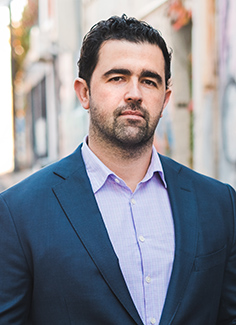
Copyright@ Australian Catholic University 1998-2026 | ABN 15 050 192 660 CRICOS registered provider: 00004G | PRV12008